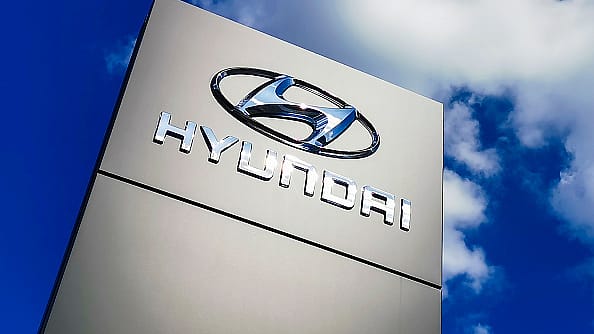Hyundai India signs term sheet to acquire GM’s Talegaon plant
ADVERTISEMENT

Hyundai Motor India Limited (HMIL), the Indian arm of the South Korean carmaker Hyundai, has signed a term sheet for the potential acquisition of identified assets related to General Motors India’s Talegaon Plant, Maharashtra, the company confirms in a statement on Monday.
The term sheet covers the proposed acquisition of land and buildings, and certain machinery and equipment for manufacturing situated at General Motors India, Talegaon plant. The proposed acquisition is subject to the signing of the ‘Definitive Asset Purchase Agreement’, and fulfillment of conditions precedent, and receipt of regulatory approvals from relevant Government Authorities and all the stakeholders related to the acquisition. It should be noted that GM is embroiled in an embittered legal battle with the retrenched workers, and mediated talks between the two adversarial parties have failed to arrive at a consensus.
It was widely reported that HMIL was the favourite to lay hands on the defunct manufacturing facility, in a three-way battle which also saw Mahindra & Mahindra and Tata Motors entering the fray. GM stopped manufacturing at the Talegaon plant—which was commissioned in 2008 and has a manufacturing capacity of 1,30,000 vehicles and 1,60,000 engines—in early 2020, after exiting the Indian market in 2017. GM had a presence in the Indian market for over two decades, and had invested in $1.4 billion in the country. It had earlier planned to sell the facility to China’s Great Wall Motor (GWM), but the sale was called off after GWM failed to make the mandated investments to assume control of the plant, and the agreement expired on June 30 last year.
HMIL, on the other hand, has earmarked an investment of ₹4,000 crore in India by 2028, and has also unveiled plans to launch six electric vehicles (EVs) in the country. It is also understood that HMIL needs incremental capacity as homegrown carmaker Tata Motors is on the heels of HMIL to become the second-largest carmaker, and has already acquired Ford’s manufacturing capacity in Sanand, Gujarat, to have enough headroom for incipient demand, especially for its electric vehicles. HMIL currently has a single manufacturing facility in Sriperumbudur, in Tamil Nadu, where it manufactures passenger vehicles both for the domestic and international markets, and is understood to be running at full capacity.
HMIL, meanwhile, sold 39,106 vehicles in February, according to the Federation of Automobile Dealers Association, whereas Tata Motors sold 38,965 vehicles in February. “The newly launched Hyundai IONIQ 5, TUCSON, Grand i10 NIOS, and AURA continue to create excitement in the Indian market space and receive tremendous customer response. Moreover, Hyundai CRETA building on its strong legacy has set a benchmark registering sales of 8.3 lakh units since inception. The overall sales numbers are showing a positive trend across segments,” says Tarun Garg, chief commercial officer, HMIL.
Earlier this month, Tata Motors achieved the milestone of five million passenger vehicles since 1998. It achieved the one million production mark in 2004, the second million in 2010, reached the three million mark in 2015, and rolled out its four millionth car in 2020. “In what serves as a testimony to the Company’s strong product portfolio and increasing consumer connect, Tata Motors was able to stride ahead from 4 million cars to 5 million within three years, despite Covid-19 and semiconductor shortage crisis which plagued the global automotive industry,” the company said in a statement.